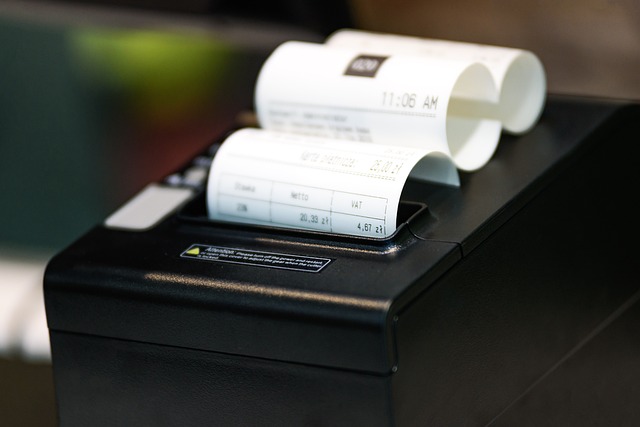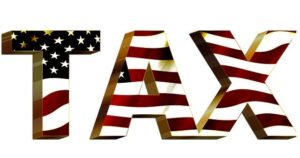Navigating Tax Paperwork: The Certified Translation Necessity for UK Residents
When submitting tax documents with non-English content to HM Revenue & Customs (HMRC) in the UK, it is essential to have those documents professionally translated into English by accredited UK translation services. These services offer certified…….

When submitting tax documents with non-English content to HM Revenue & Customs (HMRC) in the UK, it is essential to have those documents professionally translated into English by accredited UK translation services. These services offer certified translations that comply with HMRC's strict standards, ensuring the precise and legal conveyance of original tax information. The translators, who are often members of professional bodies like the Institute of Translation and Interpreting (ITI) or the Association of Translation Companies (ATC), provide a statement of accuracy alongside their official certification. This guarantees that the translated documents accurately reflect the details of the originals, thereby facilitating timely and correct tax filings for individuals and businesses with international transactions or multilingual needs. Utilizing these services is crucial to navigate the UK's complex tax system and to maintain compliance without risking penalties due to translation errors.
Navigating the complexities of tax obligations can be challenging for individuals and businesses alike, particularly when language barriers are involved. In the UK, where multilingualism is prevalent, ensuring the accuracy and certification of translations for tax paperwork is paramount. This article delves into the necessity of certified translations for UK tax documentation, outlining their role in maintaining tax compliance. We will explore the key distinctions between certified and non-certified translations, common tax documents that UK residents may need to translate, and the intricacies of overcoming language barriers within this context. Additionally, we will guide you through the criteria that renders a translation ‘certified’ in the UK, how to select reputable translation services specialising in Tax Documents UK, and the potential consequences of submitting uncertified translations to HMRC. Understanding these aspects is crucial for anyone facing the necessity of translating tax-related documents to avoid complications with their tax filings.
- Understanding the Necessity of Certified Translations for UK Tax Paperwork
- The Role of Accredited Translation Services in Tax Compliance
- Key Differences Between Certified and Non-Certified Translations
- Common Tax Documents Requiring Translation for UK Residents
- Navigating Language Barriers: Translating Tax Paperwork in the UK
- Criteria for a Translation to Be Recognized as Certified in the UK
- How to Engage with Professional Translation Services for Tax Purposes
- The Consequences of Submitting Uncertified Translations to HMRC
Understanding the Necessity of Certified Translations for UK Tax Paperwork

When managing tax paperwork in the UK, it’s crucial to ensure that all non-English documents are accurately conveyed in English for submission to HM Revenue & Customs (HMRC). This is where the services of professional UK translation services come into play. Certified translations are not just a formality; they are a legal requirement for tax documents that are written in any language other than English, Welsh, or Gaelic. The UK’s tax system demands precise and authoritative documentation to avoid discrepancies that could lead to complications or penalties. A certified translation is provided by a translator who is accredited by a relevant authority, such as the Institute of Translation and Interpreting (ITI) or the Chartered Institute of Linguists (CIOL). This certification confirms the translated content’s accuracy, authenticity, and reliability. It serves as a legal testament that the translation is a true and faithful representation of the original document, which is essential for tax-related submissions to be accepted by HMRC. Utilising professional UK translation services not only fulfils the legal obligations but also ensures that taxpayers adhere to the stringent standards set by UK tax laws, facilitating smooth processing of their tax documents.
The Role of Accredited Translation Services in Tax Compliance

When navigating the complexities of tax compliance in the United Kingdom, the accuracy and reliability of translations for non-English tax documents are paramount. Accredited translation services play a pivotal role in this context by providing precise and authoritative translations of foreign language tax records and documentation. These services ensure that all numerical data, legal terms, and financial specifics are rendered faithfully into English, adhering to the stringent standards set forth by both HM Revenue & Customs (HMRC) and professional translation bodies. This fidelity is crucial for avoiding discrepancies that could lead to tax miscalculations or compliance issues. Moreover, utilising UK translation services that are certified and recognised by HMRC provides an additional layer of trustworthiness, as these translations are accepted without question, streamlining the submission process and facilitating a seamless integration of international financial information into the UK tax system. For businesses and individuals alike, the expertise of these translation professionals is invaluable, offering peace of mind that all tax-related documentation complies with the necessary legal requirements and accurately reflects the original source documents.
Key Differences Between Certified and Non-Certified Translations

When dealing with tax documents in the UK, it is crucial to ensure that all foreign language content is accurately conveyed in English. This is where the distinction between certified and non-certified translations becomes significant. Certified translations are performed by professional translators who have been accredited by relevant authorities, such as the Institute of Translation and Interpreting (ITI) or the Chartered Institute of Linguists (CIOL) in the UK. These translations come with a statement of accuracy and a signed declaration from the translator, attesting to the exactness of the translation. This level of verification is essential for official tax documents, as HM Revenue & Customs (HMRC) requires documentation that can be trusted for legal and compliance purposes.
In contrast, non-certified translations may be carried out by less qualified individuals or automated services, and they lack the formal certification that makes them acceptable for submission with UK tax paperwork. While non-certified translations might suffice for personal use or informal contexts, they do not hold the same legal weight as their certified counterparts when it comes to official government processes. For tax documents specifically, where precise figures and accurate information are paramount, opting for a certified translation service provided by UK translation services is not just a preference but a legal requirement. These services guarantee that all translations meet the necessary standards set forth by HMRC, ensuring that your tax submissions are complete and compliant with UK regulations.
Common Tax Documents Requiring Translation for UK Residents

When UK residents encounter tax documents that require a foreign language translation, it’s crucial to engage with professional UK translation services to ensure accuracy and compliance with legal standards. Common tax documents that often necessitate translation include annual tax returns, P60 forms, VAT returns, and corporate tax computations for businesses with international operations. These translations are indispensable as they facilitate the correct reporting of income, deductions, and tax liabilities to Her Majesty’s Revenue and Customs (HMRC). Translation services specialising in tax documents for the UK must be well-versed in both the language of the source document and the specific terminology used within UK tax legislation. This expertise is vital to avoid misinterpretation of figures, financial terms, and legal conditions that could result in penalties or discrepancies in tax reporting. By leveraging the expertise of certified translators, UK residents can navigate their tax obligations with confidence, regardless of whether the original documents are in Spanish, French, Mandarin, or any other language. Professional UK translation services bridge the linguistic gap, ensuring that all translated tax documents meet the stringent requirements set by HMRC and accurately reflect the information contained within the original documents.
Navigating Language Barriers: Translating Tax Paperwork in the UK

When non-UK residents or individuals whose first language is not English need to engage with the British tax system, language barriers can pose significant challenges. Tax documents in the UK are comprehensive and often complex, making it crucial for these individuals to have accurate translations of their tax paperwork. This is where professional UK translation services become indispensable. These services specialize in converting tax documents into clear, understandable English or the required foreign language, ensuring that every figure, clause, and legal term is conveyed precisely. Utilizing certified translators who are proficient in both languages and well-versed in tax terminology not only facilitates compliance with HM Revenue & Customs (HMRC) requirements but also safeguards against misunderstandings or errors that could result in penalties or delays. For individuals involved in cross-border transactions, investment, or residence, accessing reliable UK translation services is a critical step to navigate the intricacies of tax compliance and maintain financial transparency.
Criteria for a Translation to Be Recognized as Certified in the UK

When engaging with HM Revenue & Customs (HMRC) in the UK, it is imperative that foreign tax documents are accurately translated to facilitate compliance with tax obligations. A certified translation for UK tax paperwork is not merely a linguistic exercise but a legal requirement to ensure the information’s integrity and legality. To be recognized as certified, translations must adhere to stringent criteria set by the UK’s translation authorities or relevant tax regulatory bodies. Firstly, the translated document must be complete, with no omissions of text that could alter the meaning of the original document. It should present the exact content as the source material, maintaining the same format and layout. Additionally, a certified translation for UK tax paperwork must come with a statement of accuracy by the translator, affirming that it is a true and impartial representation of the original text. This statement is typically accompanied by the translator’s signature, along with their official stamp or embossed seal, attesting to their qualifications as a professional translation service provider. The credential accompanying the translation should be verifiable, ensuring that the translator has the authority and expertise to perform such translations. Only translations meeting these criteria will be accepted by HMRC, making the choice of UK translation services a critical aspect of tax compliance for individuals and businesses dealing with international paperwork.
How to Engage with Professional Translation Services for Tax Purposes

When navigating the complexities of UK tax documentation, it is imperative to ensure that all foreign-language documents are accurately translated for submission to Her Majesty’s Revenue and Customs (HMRC). Professional translation services specialising in Tax Documents UK can bridge the linguistic gap between non-English speakers and HMRC requirements. To engage with these services effectively, it is advisable to select a provider that offers certified translations. These translations come with a statement of accuracy and a signature from a legally appointed translator, which validates the translation for official purposes. When choosing a service, consider their expertise in tax-related terminology, as well as their familiarity with UK tax laws. This ensures that all numerical data and legal terms are translated correctly, avoiding any potential discrepancies or misunderstandings. Additionally, opt for translation services that adhere to industry standards, such as the Association of Translation Companies (ATC) or the Institute of Translation and Interpreting (ITI), to guarantee professionalism and reliability. By doing so, you can streamline the process of submitting your tax documents to HMRC with confidence, knowing that your translated documents are both accurate and compliant with UK tax regulations.
The Consequences of Submitting Uncertified Translations to HMRC

Submitting uncertified translations of tax documents to Her Majesty’s Revenue and Customs (HMRC) in the UK can lead to significant complications and repercussions. HMRC requires that all foreign language documents accompanying tax submissions be accurately translated and certified to ensure clarity and legal compliance. Uncertified translations may result in delays, as HMRC will likely request proper certification to validate the information contained within these documents. This can cause disruptions and potentially lead to penalties or the rejection of tax returns, which in turn could affect an individual’s or company’s financial standing and legal status. To avoid such issues, it is imperative to engage with professional UK translation services that provide certified translations. These services guarantee the accuracy of translations and include a statement of accuracy and a signature from a certified translator, which HMRC accepts as proof of the translation’s reliability. Utilising these services mitigates the risk of errors or misinterpretations in tax documents and ensures compliance with UK legal requirements.
When navigating the complexities of the UK tax system, particularly for non-English speaking individuals or businesses, the necessity of accurate and certified translations becomes paramount. This article has illuminated the critical role that accredited translation services play in ensuring tax compliance and avoiding potential penalties associated with uncertified translations. Understanding the distinction between certified and non-certified translations, as outlined within this piece, empowers taxpayers to meet the stringent requirements set by HMRC. By highlighting common UK tax documents that often necessitate translation, and providing clear criteria for what constitutes a certified translation in the UK, individuals can confidently engage with professional translation services tailored for tax purposes. Ultimately, adhering to these guidelines is essential for maintaining transparency and accuracy within tax submissions, thereby upholding legal obligations and facilitating seamless interaction with the UK tax authorities.






